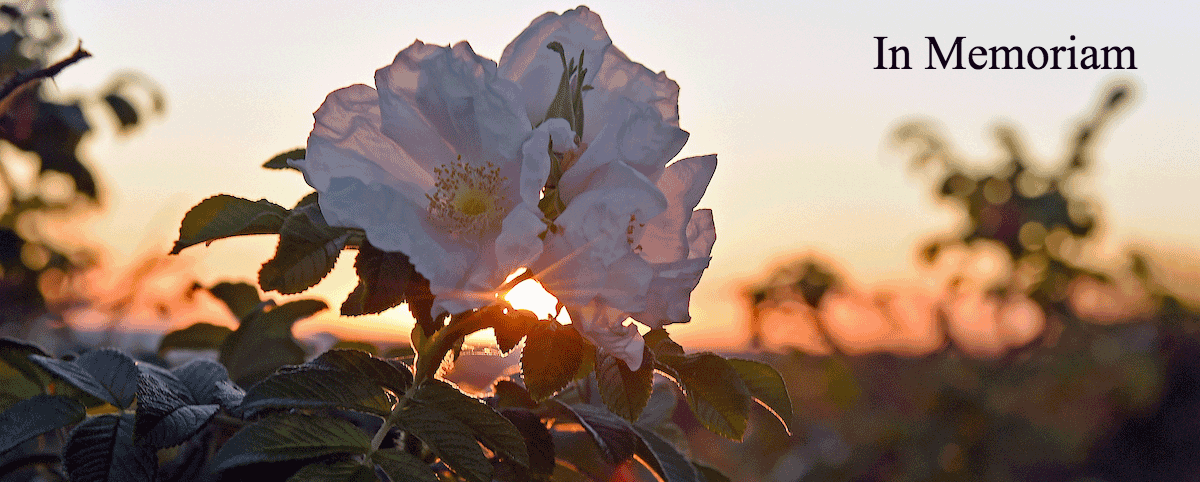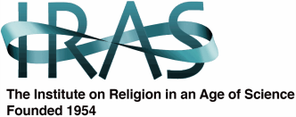
IRAS Memorial Book (Download PDF)
Ward Hunt Goodenough

May 30, 1919 - June 9, 2013
Ward H. Goodenough died on June 9, 2013 at age 94, in Haverford, Pennsylvania. Transcending the triteness of the terms, he was a true renaissance man and a consummate gentleman. A long-time Professor at the University of Pennsylvania, he shaped the discipline of Anthropology in the second half of the 20th century, was active as a composer and poet, and was loved as a friend, a mentor, and a patriarch of his family.
Born May 30, 1919, in Cambridge Massachusetts, he lived in England and Germany as a young child while his father studied for a doctorate at Oxford. He became fluent in German by age 4, and his fascination with languages continued throughout his life. In his later childhood, the family moved to the New Haven, Connecticut area. He attended high school at the Groton School in Groton Massachusetts and earned a B.A. in 1940 from Cornell University. There, he majored in Scandinavian languages and literature, lived in Telluride House, and, most importantly, met his soon-to-be wife, Ruth Gallagher, through a campus organization in which they both served as officers.
Although he enrolled in graduate school at Yale University, his studies were interrupted by World War II where he served as a noncommissioned officer in the United States Army from November 1941 to December 1945. During the last years of the war, he did research under Gen. George Marshall that helped enable two of Marshall's signature achievements: showing that integration of the armed forces was both feasible and desirable, and that the GI Bill would meet the needs of returning soldiers and thereby prevent destabilization of civilian society.
Returning to Yale after the war, Goodenough earned his Ph.D. in Anthropology in 1949. He was greatly influenced by George Peter Murdock, who supervised his dissertation. With Murdock, he followed in the footsteps of Bronisław Malinowski, but the tradition of American Pragmatism, such as George Herbert Mead's theories of the self and language, also had a particular influence on Goodenough. Goodenough worked with Murdock as a Research Assistant on the Cross-Cultural Survey in 1940, and then did fieldwork on Chuuk (Truk) in Micronesia with Murdock for seven months in 1947. His resulting PhD thesis was published as Property, Kin and Community on Truk (1951). He had a life-long attachment to Chuuk and its people and was the author and compiler of the Trukese English Dictionary (1980).
Goodenough's later fieldwork was also in Oceania, both in Micronesia (Kiribati and Chuuk), and in Melanesia (New Britain and Papua New Guinea). An expert on kinship, his best known early work was the development of a method for applying componential analysis to the study of kinship terminology, particularly in his articles "Componential Analysis and the Study of Meaning" (1956 ) and "Yankee Kinship Terminology: A Problem in Componential Analysis" (1965).
Ward H. Goodenough died on June 9, 2013 at age 94, in Haverford, Pennsylvania. Transcending the triteness of the terms, he was a true renaissance man and a consummate gentleman. A long-time Professor at the University of Pennsylvania, he shaped the discipline of Anthropology in the second half of the 20th century, was active as a composer and poet, and was loved as a friend, a mentor, and a patriarch of his family.
Born May 30, 1919, in Cambridge Massachusetts, he lived in England and Germany as a young child while his father studied for a doctorate at Oxford. He became fluent in German by age 4, and his fascination with languages continued throughout his life. In his later childhood, the family moved to the New Haven, Connecticut area. He attended high school at the Groton School in Groton Massachusetts and earned a B.A. in 1940 from Cornell University. There, he majored in Scandinavian languages and literature, lived in Telluride House, and, most importantly, met his soon-to-be wife, Ruth Gallagher, through a campus organization in which they both served as officers.
Although he enrolled in graduate school at Yale University, his studies were interrupted by World War II where he served as a noncommissioned officer in the United States Army from November 1941 to December 1945. During the last years of the war, he did research under Gen. George Marshall that helped enable two of Marshall's signature achievements: showing that integration of the armed forces was both feasible and desirable, and that the GI Bill would meet the needs of returning soldiers and thereby prevent destabilization of civilian society.
Returning to Yale after the war, Goodenough earned his Ph.D. in Anthropology in 1949. He was greatly influenced by George Peter Murdock, who supervised his dissertation. With Murdock, he followed in the footsteps of Bronisław Malinowski, but the tradition of American Pragmatism, such as George Herbert Mead's theories of the self and language, also had a particular influence on Goodenough. Goodenough worked with Murdock as a Research Assistant on the Cross-Cultural Survey in 1940, and then did fieldwork on Chuuk (Truk) in Micronesia with Murdock for seven months in 1947. His resulting PhD thesis was published as Property, Kin and Community on Truk (1951). He had a life-long attachment to Chuuk and its people and was the author and compiler of the Trukese English Dictionary (1980).
Goodenough's later fieldwork was also in Oceania, both in Micronesia (Kiribati and Chuuk), and in Melanesia (New Britain and Papua New Guinea). An expert on kinship, his best known early work was the development of a method for applying componential analysis to the study of kinship terminology, particularly in his articles "Componential Analysis and the Study of Meaning" (1956 ) and "Yankee Kinship Terminology: A Problem in Componential Analysis" (1965).
Normand Laurendeau

Aug. 16, 1944 - May 20, 2012
It is with deep regret that we record here the passing away of Normand, dear friend and colleague to so many of us, and active member of IRAS, Normand. Graduate of Notre Dame (B.S.), Princeton (M.S.E.), and UC Berkeley (PhD), Normand had a very productive professional career in the course of which (among other things) he was Director of Purdue's Coal Research Center, Ralph and Bettye Bailey Professor of Combustion, Research Associate at Bowdoin College (Brunswick, ME). He also served as a visiting scholar at the Graduate Theological Union (Berkeley, CA). Dr. Laurendeau authored or coauthored more than 175 refereed publications and some 225 presentations and reports. His textbook, Statistical Thermodynamics: Fundamentals and Applications, was published in 2005 by Cambridge University Press. Laurendeau was a Fellow of the Optical Society of America and of the American Society of Mechanical Engineers, a also member of the Combustion Institute and of the American Chemical Society.
Normand was an avid reader; he enjoyed swimming at the Laurendeau family "camp” in Buttermilk Cove; watching his favorite sports teams; and being with family in Maine and California. He was a life-professed Lay Dominican, and also served as a sacristan at All Saints Parish in Brunswick.
We at IRAS will always remember him for his energy, enthusiasm, commitment, and organizational skill.
IRAS conveys its condolences to his wife of 40 years Marlene Carlos Laurendeau of Brunswick, to; his son Jules Laurendeau, and to all his family.
It is with deep regret that we record here the passing away of Normand, dear friend and colleague to so many of us, and active member of IRAS, Normand. Graduate of Notre Dame (B.S.), Princeton (M.S.E.), and UC Berkeley (PhD), Normand had a very productive professional career in the course of which (among other things) he was Director of Purdue's Coal Research Center, Ralph and Bettye Bailey Professor of Combustion, Research Associate at Bowdoin College (Brunswick, ME). He also served as a visiting scholar at the Graduate Theological Union (Berkeley, CA). Dr. Laurendeau authored or coauthored more than 175 refereed publications and some 225 presentations and reports. His textbook, Statistical Thermodynamics: Fundamentals and Applications, was published in 2005 by Cambridge University Press. Laurendeau was a Fellow of the Optical Society of America and of the American Society of Mechanical Engineers, a also member of the Combustion Institute and of the American Chemical Society.
Normand was an avid reader; he enjoyed swimming at the Laurendeau family "camp” in Buttermilk Cove; watching his favorite sports teams; and being with family in Maine and California. He was a life-professed Lay Dominican, and also served as a sacristan at All Saints Parish in Brunswick.
We at IRAS will always remember him for his energy, enthusiasm, commitment, and organizational skill.
IRAS conveys its condolences to his wife of 40 years Marlene Carlos Laurendeau of Brunswick, to; his son Jules Laurendeau, and to all his family.
David White Hunter

Feb. 26, 1935 – Dec. 23, 2011
David W. Hunter of Holliston, MA, a member of IRAS since 1980, passed away in December 2011, after a long illness. He was an aircraft mechanic and model builder. He loved airplanes, sailing and motorcycles. He was active with his wife Joan in the Unitarian Universalist Area Church in Sherborn, MA. His inquiring mind and infectious sense of humor enlivened many IRAS summer conferences.
David W. Hunter of Holliston, MA, a member of IRAS since 1980, passed away in December 2011, after a long illness. He was an aircraft mechanic and model builder. He loved airplanes, sailing and motorcycles. He was active with his wife Joan in the Unitarian Universalist Area Church in Sherborn, MA. His inquiring mind and infectious sense of humor enlivened many IRAS summer conferences.
Copyright 2018 by The Institute on Religion in an Age of Science
